ChatUI teaching guide
Approved for data classification level
Introduction
ChatUI on UCloud is an intuitive application for working with large language models (LLMs). This guide will walk you through the process of setting up, configuring, and using ChatUI effectively, including optimizing the app for teaching.
Configuring the ChatUI application
1. Create a data directory
To save configurations and avoid repeated setups, create an empty folder on your drive in UCloud. This folder will later be used as the input parameter DATA_DIR .
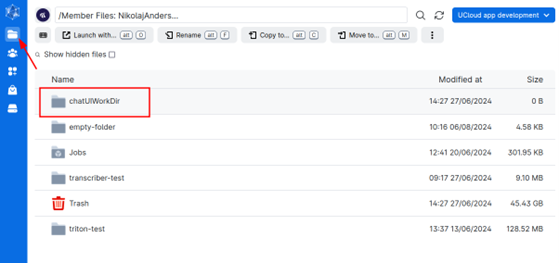
2. Find and start the ChatUI application
Search for "chatui" under the apps section of UCloud and select it to begin setup.
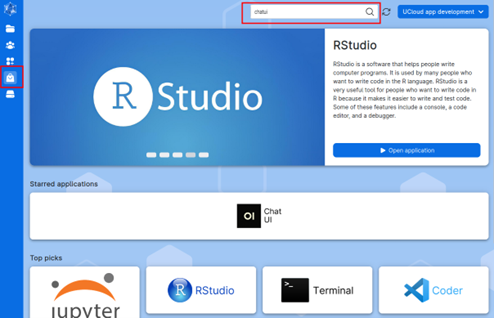
3. Select the optimal machine configuration
Choose a machine with one GPU, such as u3-GPU (SDU) or uc1-l4/uc1-l40 (AAU/K8). Set the runtime duration in hours and select the previously created folder as DATA_DIR.
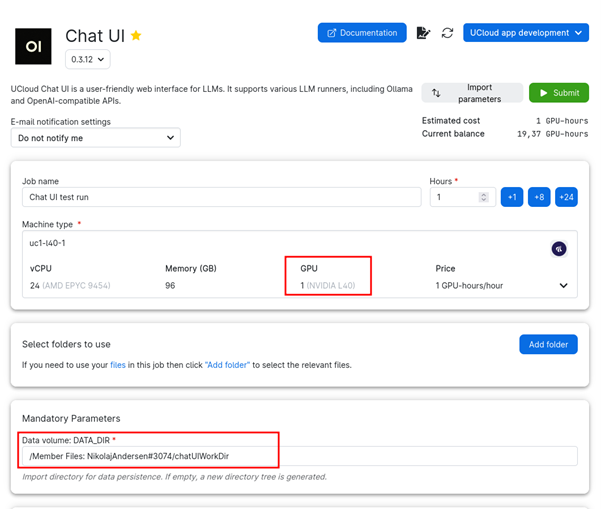
4. Create a public link for accessibility
To enable student access outside UCloud, scroll down and click "Add Public Link." Create a link within the same provider as the machine (SDU or AAU/K8) in this example we use the AAU/K8.

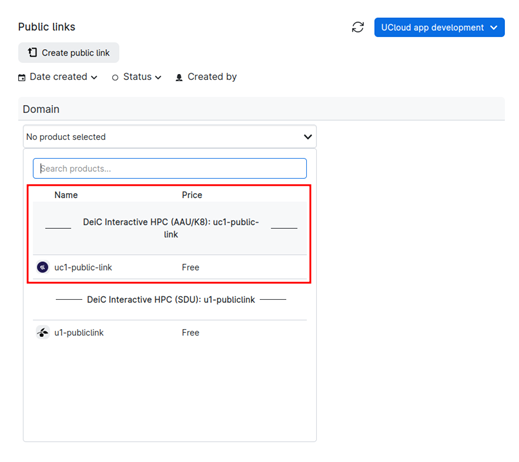
Once the link is created, click "Use." This will generate a URL to access the application.
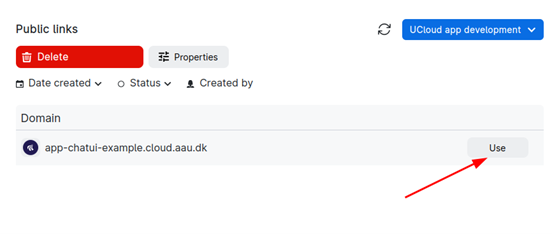
5. Launch the application
Click the green "Submit" button at the top of the page to start the application. After launching, wait for the application to build and then click "Open Interface" to access ChatUI. Refresh the page if it doesn't load.
6. Set up admin and student users
The next step is to create an account by clicking "Sign Up." Enter your name, email, and password, then click "Create Account." The first user (you) will automatically be assigned the admin role.
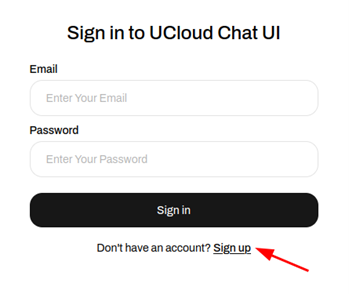
Currently, anyone who accesses the URL can create a user and access ChatUI, we therefore recommend that after logging in, go to Settings > General to disable new sign-ups. This ensures that only authorized users can access the application.
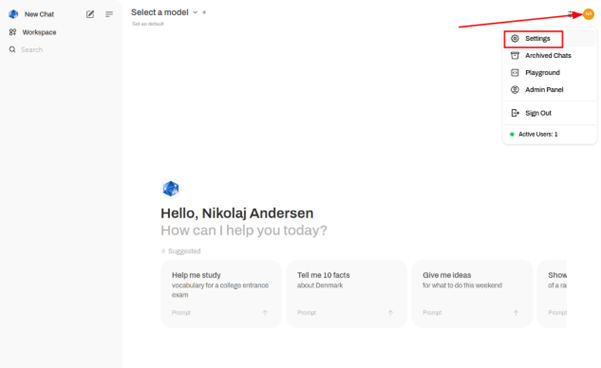
You then have two options for providing your students with access:
1. Activate new sign-ups the first time students need to use ChatUI, such as in the classroom. Once all students have signed up, you can disable sign-ups again as described above.
2. Create a single student user with a generic email and password for all students to use.Note: Using this method allows students to see each other's queries.
- Under the Dashboard, create a user account for students. Assign the user as "Normal" instead of "Admin" to maintain control over the application settings.
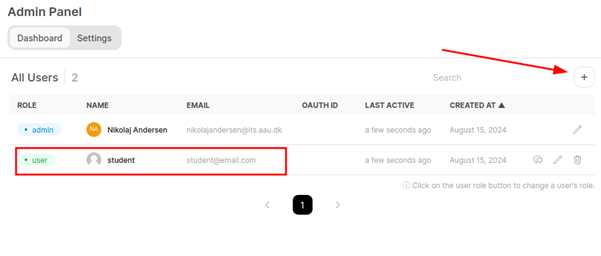
7. Download and manage models
Go to Settings > Models to download models. If you’re unsure of the model name, use the provided link to explore available options. For example, type "llama3" and click the download button.
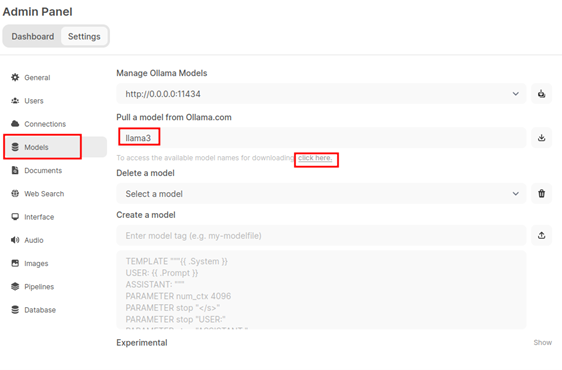
Once downloaded, the model will appear in the Workspace under the Models section.
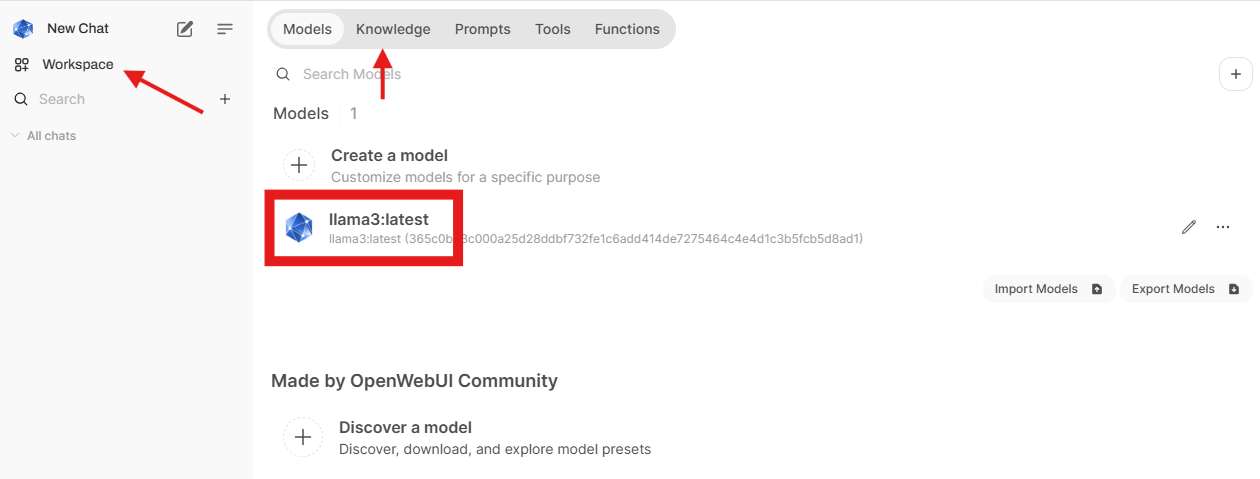
8. Set up a knowledge base for RAG functionality
In the Knowledge section, you can create a knowledge base to upload documents for retrieval-augmented generation (RAG).

Provide a name and description for the knowledge base, then upload documents or directories.
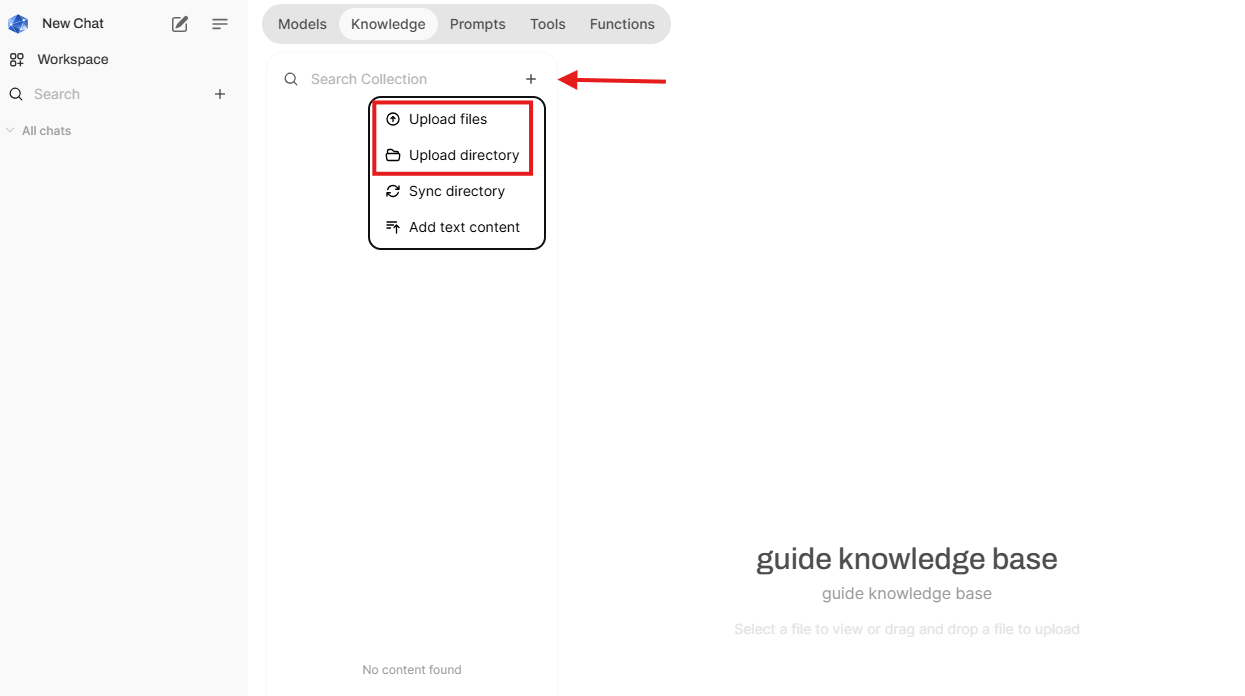
Using ChatUI for inference
1. Start a new chat
Click "New Chat" in the upper-left corner. Select the downloaded model (e.g., llama3) from the dropdown. Use # in the prompt input field to reference the knowledge base.
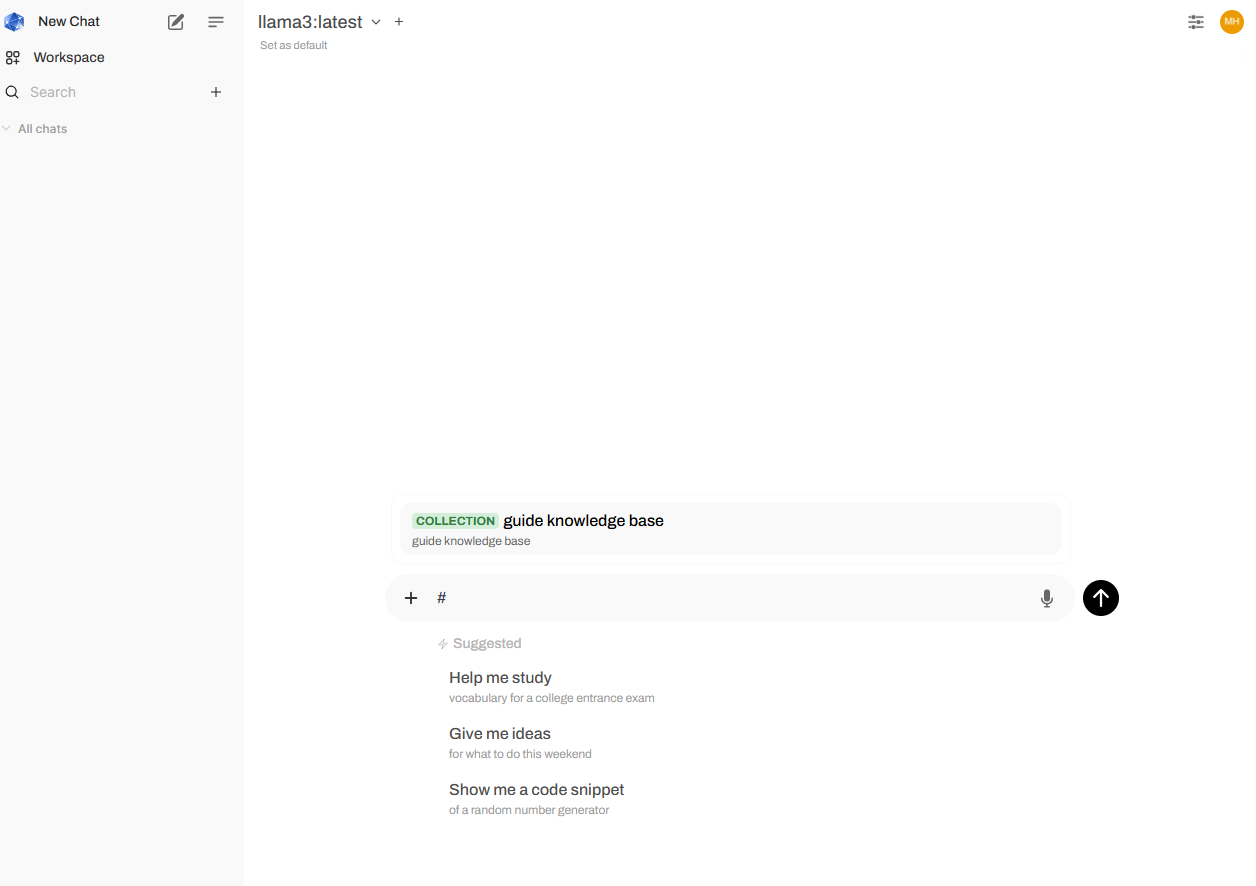
2. Submit queries and view responses
Type a query in the input field. Responses will indicate the source document used in the reply.
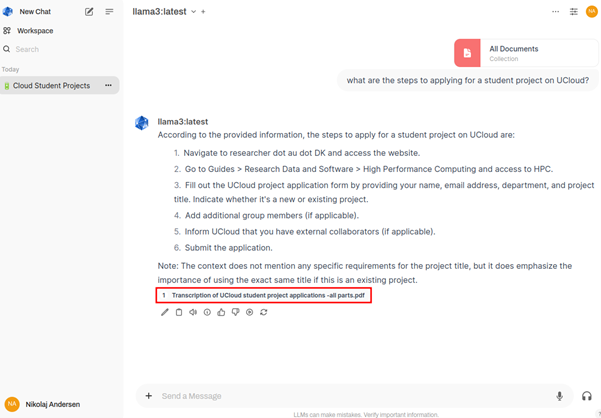
Students can log in with their designated account to access the same models and knowledge bases.
Reusing configurations
Next time you want to use the same settings:
1. Click Import parameters on the app start page.
2. Import the configuration from the previous session.
3. Click "Submit" to relaunch the app.
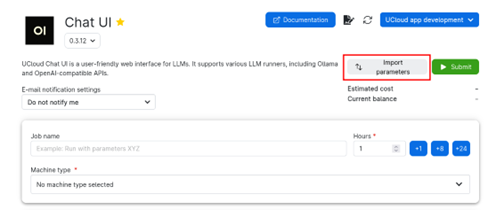
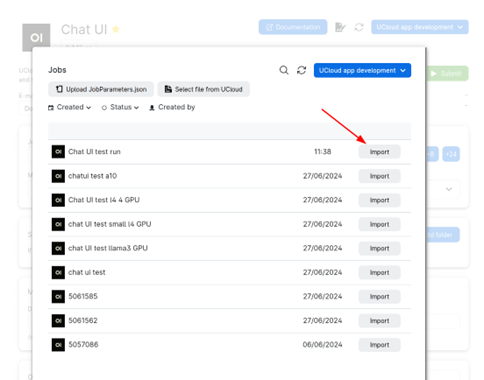
FAQ
1. Why does the first response take longer to complete?
The model needs to load into memory before processing queries. Subsequent responses will be faster.
2. Why is there no response to my first query?
The model might not be fully loaded. Click "Edit," then "Save," and resend the query. Alternatively, monitor the log file ollama-log.txt to confirm the model is ready.
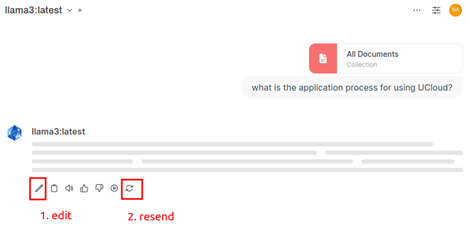
3. How to extend server runtime?
Locate your server in UCloud’s recent runs tab, select the instance, and add more time using the +1, +8, or +24-hour buttons.
4. How to stop the server?
In the recent runs tab, select the server and click "Stop application." Confirm the shutdown to free resources and avoid unnecessary costs.
5. Why is shutting down the server important?
- Cost management: Servers consume resources billed by the hour.
- Resource allocation: Free up resources for other users or projects.
6. What to do if I cannot start a server due to "not enough credits"?
Check if you’re in the correct project. If resources are depleted, apply for more using the designated application form.
7. What does "Job is unavailable" mean?
This error appears if the server isn't ready. Wait 30 seconds and try "Open Interface" again.